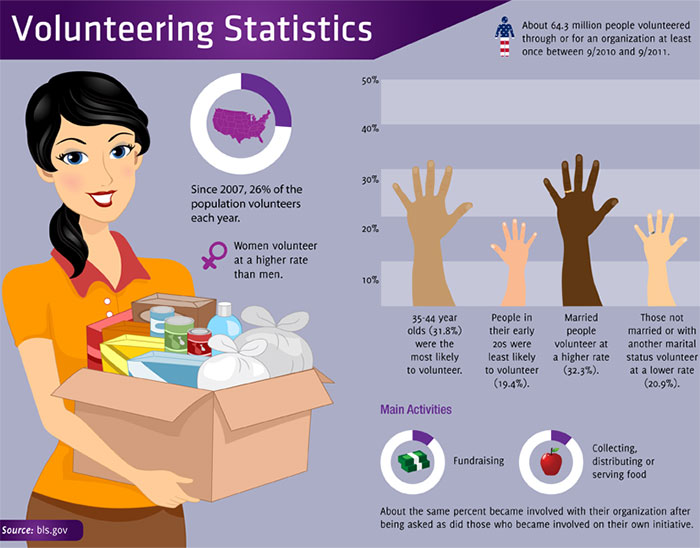
“They stress the importance of compassion for those in
need, and they encourage children and young adults to find ways to help” (3).
The authors of this article
did a study on the impact service learning has in K-12 classrooms. The two projects
they highlighted were different, one being focused on giving charity, the other
focusing on promoting change. However, any kind of service learning is better
than no service learning. I think
that it is essential for young people to be exposed to the idea of helping out
the less fortunate. I think that it makes young people more conscious about the
world and diversity around them as they grow up and become more independent.
“By engaging in meaningful service--whether tutoring children for
whom English is a second language, helping patients in a hospital, doing
difficult chores for the elderly, or supervising younger children's
recreational activities--students will have opportunities to experience what
David Hornbeck, former Maryland state superintendent referred to as ‘the joy of
reaching out to others’” (5).
I think it is interesting that these
aspects of service learning were mentioned. I think the authors may have done
so because these are examples almost every community could use. I think Rhode Island has many great volunteer opportunities. As a middle or
high school level student it would probably be easy to volunteer to help
younger students, as many may have siblings of a similar age. Also, everyone
has elderly living in their area, and I think that really great bonds could be
made between students and the elderly. I also agree, as the article points out
a few times, that students feel satisfied when they help their community.
”Rather than
tie the service curriculum exclusively to moral development, some advocates of
service learning talk about developing citizens for our democracy” (8).
When reading
this quote, I was like what a great idea! My inner history teacher thought of a
million lessons that could go along with this idea that we should be good
citizens by performing duties for “America”. As I read on, I felt that it could
be dangerous and it does suggest a political agenda that I may not want in my
classroom. Then I thought of a few ways I could flip this to turn in into a
whole other assignment about politicians in society and why they choose to
promote certain values.
Here are some interesting statistics...
Things to
discuss: What were my class mates school’s policies on service learning? What
were some positive/negative experiences?

I totally agree about how there are so many great opportunities to volunteer in Rhode Island. One could volunteer in an elderly housing, a nursing home, a camp, Special Olympics, coach, etc. There are so many opportunities. I know for my high school, part of the civics class that is needed to graduate is that you have to do community service. I think we had to do about fifteen hours.
ReplyDelete